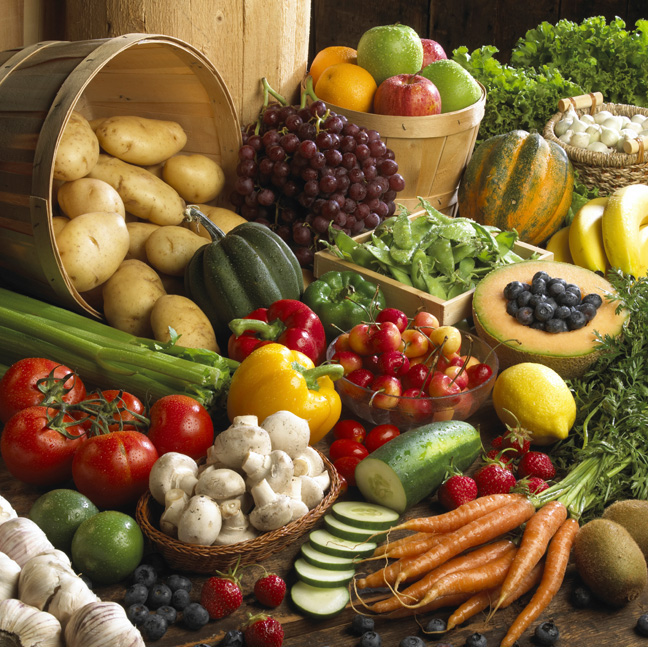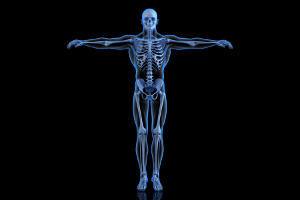Common diseases could be result of vitamin D deficiency
A variety of common health problems are linked to low levels of the “sunshine vitamin”. Are you getting enough of this vital nutrient?
 Magnesium is important for numerous physiological functions. In a new review article published in Nutrients, researchers have looked at the relation between the body’s magnesium levels and a variety of different ageing markers. Also, they hypothesize that optimal intake of magnesium throughout life is an easy and inexpensive way to obtain healthy ageing.
Magnesium is important for numerous physiological functions. In a new review article published in Nutrients, researchers have looked at the relation between the body’s magnesium levels and a variety of different ageing markers. Also, they hypothesize that optimal intake of magnesium throughout life is an easy and inexpensive way to obtain healthy ageing.

Vitamins, minerals, omega-3 and omega-6 fatty acids, and Q10 are nutrients that we need in certain quantities in order to support vital body functions.
Nutritional supplements containing vitamins and minerals must be labeled in accordance with the reference values.
This overview serves as general information about the different vitamins, minerals, and essential fatty acids and how they work.
A variety of common health problems are linked to low levels of the “sunshine vitamin”. Are you getting enough of this vital nutrient?
 Despite official recommendations to give infants a daily vitamin D supplement, nearly 50% of parents forget to follow this advice according to a large new Danish study. Not only do the children risk weak bones, it also increases their risk of infections and autism, other studies suggest.
Despite official recommendations to give infants a daily vitamin D supplement, nearly 50% of parents forget to follow this advice according to a large new Danish study. Not only do the children risk weak bones, it also increases their risk of infections and autism, other studies suggest.
 Vitamin C is also known as ascorbic acid and L-ascorbic acid. Most animals are able to synthesise vitamin C by means of a stepwise, enzymatic conversion of glucose (dextrose). However, humans, apes, guinea pigs, and certain other animals have lost this ability during evolution. The largest concentrations of vitamin C are found in the white cells of the immune defence, the pancreas, the testicles, and the ovaries. Vitamin C is water-soluble and as it is not stored in the body, we depend on regular intake of the nutrient. Vitamin C is destroyed by light, heat, boiling, freezing, preservation, and storage (including winter storage of vegetables and fruit).
Vitamin C is also known as ascorbic acid and L-ascorbic acid. Most animals are able to synthesise vitamin C by means of a stepwise, enzymatic conversion of glucose (dextrose). However, humans, apes, guinea pigs, and certain other animals have lost this ability during evolution. The largest concentrations of vitamin C are found in the white cells of the immune defence, the pancreas, the testicles, and the ovaries. Vitamin C is water-soluble and as it is not stored in the body, we depend on regular intake of the nutrient. Vitamin C is destroyed by light, heat, boiling, freezing, preservation, and storage (including winter storage of vegetables and fruit).
 Bone fractures can be fatal, especially in old age where hip fractures typically result in hospitalization and early death. According to a study from Edith Cowan University in Australia, increased intake of vitamin K1 from foods like spinach, cabbage, and other vegetables lowers the risk of bone fractures later in life. Vitamin K1’s positive effect on bone health is linked to the fact that K1 is converted into vitamin K2 in the intestine, and vitamin K2-dependent proteins clear calcium from the bloodstream and embed the mineral in bone tissue.
Bone fractures can be fatal, especially in old age where hip fractures typically result in hospitalization and early death. According to a study from Edith Cowan University in Australia, increased intake of vitamin K1 from foods like spinach, cabbage, and other vegetables lowers the risk of bone fractures later in life. Vitamin K1’s positive effect on bone health is linked to the fact that K1 is converted into vitamin K2 in the intestine, and vitamin K2-dependent proteins clear calcium from the bloodstream and embed the mineral in bone tissue.
 "After about one week of taking the Q10 supplement I could feel a huge difference," says 23-year old Alan Piccini, who has been suffering from extreme fatigue and muscle aches ever since he was a child.
"After about one week of taking the Q10 supplement I could feel a huge difference," says 23-year old Alan Piccini, who has been suffering from extreme fatigue and muscle aches ever since he was a child.
Read more
 “Taking capsules with co-enzyme Q10 has freed me of the severe side effects of my cholesterol lowering medicine,” Mrs Franken explains.
“Taking capsules with co-enzyme Q10 has freed me of the severe side effects of my cholesterol lowering medicine,” Mrs Franken explains.
Read more